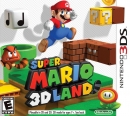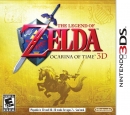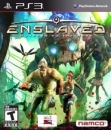SvennoJ said:
zero129 said:
So like i said. Sony wanted to get the royaltys from Nintendo first party games that would of been using the CD and Nintendo was like f*** that im out who does Sony think they are?, and went their own way and thats how the PS came to be. Not much different then with MS entering the console market.
|
Nintendo and Sony had agreed on their terms and signed a contract. Nintendo broke the contract.
Nintendo had pursued Sony, aggressively, to work with them to develop a new console that could use compact discs instead of the cartridges familiar from its Super Nintendo Entertainment System; they had consented to the deal, if somewhat reluctantly, and had been working on the hardware under the terms of a contract agreed to by both parties. Sony’s executives turned up to the Consumer Electronics Show expecting to listen to Nintendo’s promised presentation of the partnership. When Sony’s then-president Olaf Olaffson heard Yamauchi announce on stage that Nintendo would be working with Philips, it was the first he had heard of it. “We view this as a very serious matter,” was all he could tell stunned journalists after the announcement. He said it was “not clear” whether Nintendo had breached their contract.
But sure, keep blaming Sony for Nintendo shooting themselves in the foot.
“According to the contract, Sony could make and sell CD-ROM games without buying them from Nintendo. Nintendo wanted a monopoly on manufacturing games for its hardware.”
How do you come to the conclusion that Sony wanted royalties from Nintendo first party games???
Did MS have a deal with Sony to work together before making the original Xbox? Very different situation.
Actually they did work together earlier on the MSX but that never caught on in the US https://tedium.co/2019/01/29/microsoft-msx-history/ Sad as console history would have been very different with an open platform where manufacturers can compete on the hardware as well as the software. MSX was made by National, Sony, Pioneer, Panasonic, Samsung, Sharp, Philips, Canon, Yamaha, Toshiba, Mitsubishi, Sanyo, JVC, Fujitsu, Spectravideo, GoldStar, Hitachi, Kyocera, Yashica, Daewoo, Dragon MSX, Casio and developed by ASCII Corporation, Microsoft.
From Google
"Concerned about Sony's successful PlayStation console damaging the personal computer market, Microsoft initiated plans in 1999 to create its own console gaming system to both diversify its product line and capitalize on the thriving gaming industry."
Pretty different from
"Sony began developing the PlayStation after a failed venture with Nintendo to create a CD-ROM peripheral for the Super Nintendo Entertainment System in the early 1990s."
MS is now eyeing the thriving mobile games industry and inroads onto your smart TV with game streaming. Google and Apple are MS' competitors.
|
Thats a nice way to twist history.
"Using the same Super Disc technology as the proposed SNES drive, Sony began development on what was to eventually become the PlayStaion. Initially called the Super Disc, it was supposed to be able to play both SNES cartridges and CD-ROMs, of which Sony was to be the "sole worldwide licenser," as stated in the contract. Nintendo was now to be at the mercy of Sony, who could manufacture their own CDs, play SNES carts, and play Sony CDs. Needless to say, Nintendo began to get worried."
By this point, Nintendo had had just about all it could take. On top of the deal signed in 1988, Sony had also contributed the main audio chip to the cartridge-based Super NES. The Ken Kutaragi-designed chip was a key element to the system, but was designed in such a way as to make effective development possible only with Sony's expensive development tools. Sony had also retained all rights to the chip, which further exaserbated Nintendo.Link https://www.ign.com/articles/1998/08/28/history-of-the-playstation
The SNES CD-ROM all started with Ken Kutaragi, a young engineer at Sony who’d later become known as the “father of the PlayStation.” Kutaragi struck a deal with Nintendo to create the sound chip for the Super NES—a decision he apparently made without the knowledge of Sony’s board of directors. The project was a success—the SNES’ sound hardware is one of the most widely praised aspects of the machine’s design—and for the next step in what was looking like a fruitful partnership between Nintendo and Sony, Kutaragi proposed that Sony be allowed to create a Super Nintendo that had a CD-ROM drive built in. Nintendo agreed. (Much different from Nintendo begging Sony)
The behind-the-scenes of this deal are mostly shrouded in Japanese corporate secrecy, but in late 2016, we got some rare insight into how it all went down—from one perspective, that is. Shigeo Maruyama, the former head of Sony Computer Entertainment, discussed it with the Japanese site Denfaminicogamer, translated by Nintendo Everything. (Straight from someone who worked at Sony)
Kutaragi “was a strong advocate for pursuing CD-ROM support over cartridges,” Maruyama said. “But Nintendo wanted to stick to [cartridges] for games. CD-ROMs can take 10-15 seconds to load, after all. They probably didn’t think users would want to wait that long. But Kutaragi wouldn’t let up his arguments, so eventually Nintendo told him, ‘Alright. We don’t think it will be successful, but you can do your CD-ROM thing.’”
It was, by all accounts, Nintendo’s skepticism in the viability of CD-ROMs that caused it to give away too much in the contract it signed with Kutaragi. Sony got the rights to create and sell CD-ROM software that would run on the Super NES-compatible machine, which it called the “Play Station.” It wouldn’t have to pay Nintendo any royalties or get its approval for CD-ROM games. This meant that if developers and consumers did embrace CD-ROM gaming on the Super NES, Nintendo wouldn’t get a dime off any of those game sales—only the hardware sales.
Why would Nintendo allow this to happen? Maruyama said it was because Sony “explicitly told them we were going to focus on everything but video games.” In other words, Sony’s position was that it would make encyclopedias, home karaoke software, and other non-gaming applications using CD-ROMs, and leave all the gaming to Nintendo. But apparently this was not in the contract itself, and once the ink was on paper, Sony had carte blanche. (Pretty much Sony tricked Nintendo and wanted to make them a 2nd party using their own software. When nintendo found this out they clearly didnt want the deal.)
The Summer Screwjob
If you’ve heard any story about the Super NES CD-ROM, it’s probably this one: At the Summer 1991 Consumer Electronics Show, the entire world expected that Nintendo would stand up at its press conference and reaffirm that Sony would provide the CD-ROM drive for its upcoming Super Nintendo. Instead, Nintendo betrayed its partner and shocked the world by announcing that it had instead decided to partner with Philips for the SNES CD, delivering a stunning insult to Sony that caused the company to go it alone and develop what we now know today as the PlayStation.
It’s a riveting story, but it’s not entirely true. What really happened is much more complicated. (as you can see what you posted isnt exactly true, but nice try to paint Sony as the good guy Nintendo as the bad)
It is true that, until very shortly before the Summer CES, the Nintendo-Sony joint venture was still on. A Nintendo Power article about Super NES in its June 1991 issue made reference to “the CD-ROM unit currently being developed jointly by Nintendo and Sony.” And it is also true that things fell apart rather quickly. But it was not, as the oft-told story goes, that Sony executives were sitting in the audience for Nintendo’s conference expecting to hear the word “Sony” and instead heard “Philips.”
Sony executives, wrote David Sheff in his 1993 book Game Over, “had learned about the pending press conference forty-eight hours earlier, and were… stunned.” Howard Lincoln, then a Nintendo of America exec, told Sheff that Sony had sprung into action when it heard the news, trying to put the kibosh on the whole thing. “There were tremendous efforts on a worldwide basis to keep that press conference from happening,” he said.
How did Sony’s spies find out that Nintendo was planning on announcing a partnership with Philips? Likely by the time-honored espionage technique of… reading the newspaper. “Nintendo, Philips Join In Games On CD,” read the headline of a Seattle Times story dated May 31, 1991, exactly two days prior to Nintendo’s June 2 event. “Japan’s Nintendo Co. Ltd. has agreed... with Dutch electronics maker Philips Electronics NV to put its popular video games on compact discs, a Nintendo spokesman said today,” the story read.
So a Nintendo spokesperson had already told the media that the company planned to go with Philips as its partner, notwithstanding the deal it already had in place with Sony. That meant that when Sony had its own press conference on June 1, 1991 and announced its “Play Station” device, it already knew what Nintendo planned to do the next day.
Perhaps that’s why the media came out of Sony’s conference with the impression that Sony was planning on using its contract with Nintendo to try to back-channel its way into game publishing.
“Sony, Nintendo’s Partner, Will Be a Rival, Too,” read the headline of a New York Times piece on June 1, following the conference. “While Sony and Nintendo have collaborated on the machine, Sony will clearly become a competitor of Nintendo,” read the piece. “Sony confirmed yesterday that it had retained all licensing rights for any compact disk game developed for the new system.”
“By that oversight, Sony ended up with a very important business advantage,” Larry Probst, then the CEO of Electronic Arts, remarked in the story. “I heard they gave the store away,” said one analyst. Sony made it clear that it planned to leverage its new holdings in the music and movie businesses, noting that it planned to release a game based on the movie Hook and floated the possibility of a Michael Jackson game as well.
So, while the shift from Sony to Philips did all happen in whirlwind fashion, the fact is that when Nintendo finally made it official on June 2, nobody was surprised. Once all the dust had settled, Sony still planned to release the Play Station, which was simply a Super Nintendo with a CD-ROM drive attached to it, and create CD-based game software for it. Separately, Nintendo and Philips would team up to create an add-on for the Super Nintendo that would add CD-ROM capability and be compatible with the standalone machine that Philips was going to release later that year, called the CD-i.
“Our engineers reached the conclusion that from a technical standpoint that it was better for Nintendo to work with Philips,” Howard Lincoln told the New York Times. “There is a dispute between Sony and Nintendo as to the terms of the agreement.” Meanwhile, the Super Nintendo itself had not even been released yet, and the Times correctly noted that all of the backstabbing had taken away attention from the actual, really cool, games that Nintendo was showing off at CES.
“It’s easy to say that Sony was 100% the victim, and Nintendo 100% the wrongdoer,” said former Sony Computer head Shigeo Maruyama in the 2016 Denfaminicogamer interview. “In fact, that’s the story the company gave all of us while I was working there.” But he wasn’t so sure that Sony had no culpability. “I get the feeling something was going on behind the scenes. After all, there had to be a reason Sony wasn’t able to go after them.”
Link: https://kotaku.com/the-weird-history-of-the-super-nes-cd-rom-nintendos-mo-1828860861
You can read all the story there.
Anyway as you can see things wasnt as black and white as you tried to say.
Sony wanted to get into the video game market long before they made the deal with Nintendo. Also they tried to trick Nintendo by holding all the rights to any game that was released on CD by stating they didnt plan on making games and would leave that up to Nintendo. They pretty much wanted to release their own console that could also play Super nintendo games not the other way around being a Super Nintendo that could also play Nintendo CD based games with Nintendo getting royalty's. When this didnt work out for Sony they waited for when the next gen would start and released the PlayStation anyways and went for the kill on Nintendo.
Back then in the video game market Sony was the Microsoft compared to Nintendo and Sega, they had much more money, had their hands in much more then just video games, could afford to offer lower license fees and buy exclusives etc.
So pretty much nothing changes with my original statement. Its just some Sony fans dont know or want to know the history of Sony while they are shitting on everyone else.
Last edited by zero129 - on 20 January 2023




























































